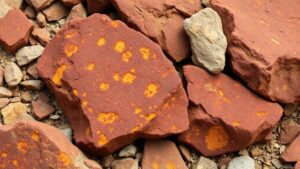The Importance of Knowing Local Laws and Claims Before Prospecting
The Importance of Knowing Local Laws and Claims Before Prospecting
Prospecting, whether for minerals, relics, or other valuable resources, is an exhilarating pursuit that draws individuals into the great outdoors. But, before setting out on this adventure, it is imperative to understand the local laws and the types of claims that may be applicable. Failing to do so can result in legal consequences, loss of property, and wasted efforts. This article outlines why knowing local laws and claims is essential for anyone interested in prospecting.
Understanding Local Laws
Local laws governing prospecting vary significantly from one region to another. These laws include regulations regarding land use, environmental protection, and ownership rights. Ignorance of these laws can lead to unintentional violations, causing both legal repercussions and damage to ones reputation.
For example, in the United States, the Bureau of Land Management (BLM) regulates mining activities on public lands. If someone prospecting fails to obtain the necessary permits or disregards environmental regulations, they could face hefty fines or even criminal charges. In 2020, the BLM reported over 1,000 enforcement actions against illegal prospecting, underscoring the importance of knowledge in this area.
The Different Types of Claims
Prior to prospecting, it is also crucial to understand the various types of claims associated with mineral rights. These can include:
- Unpatented mining claims
- Patented mining claims
- Prospecting permits
An unpatented mining claim gives the holder the right to extract minerals on federal land, but the claim must be maintained according to specific regulations. In contrast, a patented mining claim translates ownership of the land itself, allowing for greater freedoms but also imposing greater responsibilities, such as paying property taxes. Understanding these distinctions ensures prospectors know their rights and responsibilities, reducing risks of infringing on someone else’s claims.
Case Studies
Several cases highlight the consequences of not adhering to local laws and understanding claims. One notable incident occurred in California, where an amateur prospector was fined $10,000 for mining on protected land without the necessary permits. Similarly, in Arizona, a group of prospectors faced litigation for trespassing on a section of private land while prospecting, leading to costly legal fees and loss of equipment.
Real-World Applications
Knowing local laws and the structure of claims is not only about avoiding penalties; it also enhances the prospecting experience. Individuals can plan more effectively and choose locations that are legally permissible, increasing the likelihood of a successful venture.
For example, many areas have designated regions for recreational prospecting that allow individuals to test their luck without the fear of infringing on legal boundaries. States like Alaska and Nevada have specific guidelines for recreational prospecting, catering directly to hobbyists while still protecting land rights and the environment.
Conclusion
In summary, understanding local laws and claims is a critical component of responsible prospecting. By being informed, prospectors not only protect themselves from legal repercussions but also contribute to sustainable practices that respect both the land and existing claims. This knowledge ensures a more rewarding experience, allowing individuals to focus on their passion without the worry of legal entanglements.
Actionable Takeaways
- Research local laws and regulations before prospecting.
- Understand the different types of claims and their implications.
- Consider attending local prospecting meetings or workshops to learn from experienced individuals.
- Always obtain necessary permits prior to prospecting activities.


